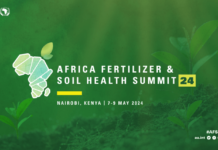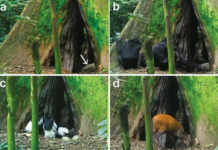The government of Ghana has launched a national policy for aflatoxin control in food and feed. Minister of Environment, Science, Technology and Innovation (MESTI), Dr Kwaku Afriyie performed the launch policy and said the move aims to protect humans, animal health while also boosting farmer’s income, the food industry and value chain actors.
Dr Kwaku Afriyie, noted scientists and researchers had confirmed the presence of aflatoxins, produced by some species of moulds that infected food products, such as maize and groundnuts under favourable conditions.
The policy will be rolled out from 2021 to 2025 and will require major inputs from the Ministry of Health, Ministry of Environment, Science, Technology and Innovation (MESTI), Ministry of Trade and Industry and Ministry of Food and Agriculture to make Ghana free from the harmful effects of aflatoxins and other food safety hazards.
Trade and market development barrier
Dr Kwaku explained that Aflatoxin B1 was known to cause about 30% of all liver cancers in humans, adding that people with Hepatitis B and HIV infections were 30 times more likely to develop liver cancer when exposed to aflatoxins. Although there was no data in Ghana linking aflatoxin to liver cancer, he said the cases were increasing with 3,453 people suffering from liver cancer in 2020.
The minister said aflatoxins also posed a barrier to trade and market development due to the rejection of contaminated products by buyers including the food industry and importing countries saying that Ghana loses about 18 per cent of maize annually due to aflatoxin contamination.
Dr Afriyie noted that the policy was in line with government’s Coordinated Programme of Economic and Social Development Policies (2017-2024), which acknowledges the challenges of agriculture, nutrition and health and makes provisions for addressing them.
Upon implementation, the policy will boost the success of government’s flagship programmes including Planting for Food and Jobs, Planting for Exports and Rural Development, Rearing for Food and Jobs and One District One Factory.
“Essentially, the implementation of the national policy will create awareness and equip agriculture value chain operators with knowledge and skills to produce raw materials devoid of aflatoxin contamination that will yield premium prices as well as serve as good raw materials for these flagship programmes,” stated the minister.
Additionally, the minister said local food and feed processing industries would be assured safe and good quality raw materials for their value-addition activities saying that it will reduce post-harvest losses and enable all categories of farmers, aggregators and traders to maximise profits from their economic activities.
Prof. Richard Tuye Awuah, Chairman of the National Steering Committee for Aflatoxin Control, called on the government to adopt Aflasafe, a biological aflatoxin control products developed in Ghana to deal with aflatoxin in foods and feeds produced in the country.
Termed, Aflasafe GH01 and GH02, he said, the products could be distributed to farmers for use in reducing aflatoxin contamination in grains, maize, sorghum, millet, groundnut and animal products including milk and meat.









